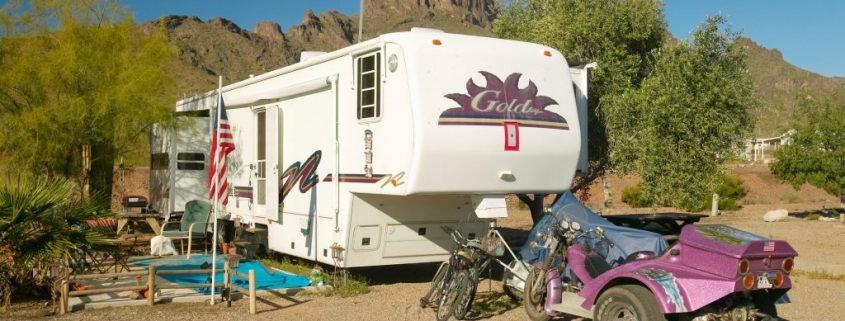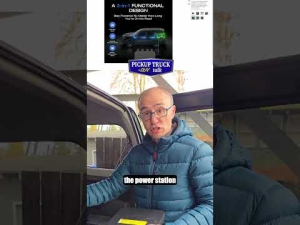Can You Go off-Grid With an RV?
In the summer of 2020, RV sales jumped as people stuck at home during the pandemic looked for safer ways to travel. In the summer of 2021, these new RV owners may want to explore further, even going off-grid. So, what is going off-grid, and is it really possible to go off-grid with an RV?
What does going off-grid mean?
While most RV users connect back to civilization and communities for their utilities, those who go off-grid don’t. Going off-grid means leaving these public utilities behind, with no electricity, water, or waste disposal being supplied at the camping location. Other names for going off-grid with an RV are free camping, dry camping, and boondocking. Going off-grid lets RV users escape the campgrounds for public land or any location, points out The Drive.
How to power your RV
To go off-grid with an RV, some supplies are needed. The most obvious need is an RV. While any motorhome can go off-grid, travel trailers are the most popular way to do it. To generate electricity, either a gas generator or solar panels are needed. Gas generators are the older technology option. They are noisy and need gas to run, so they’re not peaceful or environmental.
Solar panels convert sunlight into energy and store it in a battery pack. These systems can be either portable or built into the RV and are likely preferable over gas generators. Generally, one to four panels are needed. Portable systems are more affordable, but they do need to be set up, and they don’t store much energy. Built-in systems can be either aftermarket or from the factory. Aftermarket solar systems let drivers pick exactly what they want, but they are more expensive and need to be installed by an aftermarket shop. Manufacturers like the Keystone RV Company have models with integrated solar systems. These are very convenient, although they can’t be customized and might be difficult to upgrade later.
Dealing with water and waste in an RV
An RV’s holding tanks can probably store enough water for a few days to possibly a week, says RVBoondocker. Keeping a full tank can reduce fuel efficiency, so look for places to fill up that are near where you’ll be camping. You can also bring a collapsible, refillable water container. Be sure to use a filter if you plan to collect rainwater or moving river water. Don’t drink from still water or water you don’t know the source of. Lastly, there are also filtering cans and water dispensers that are great.
For waste collection, the RV comes with a black tank. Depending on the size of the model, the tank may fill up in five to seven days, says Drivin’ & Vibin’. It’s illegal to dump the tank on the ground, and there aren’t any supplies to solve this problem. RVs will need to leave the camp to dump at a dump station located at an RV park, truck stop, interstate rest stop, county park, or fairgrounds.
With a little preparation, it’s possible to leave the campgrounds behind and go off-grid to explore the country in an RV.
RELATED: Never Worry About Charging Your EV Again With This Camper
The post Can You Go off-Grid With an RV? appeared first on MotorBiscuit.




